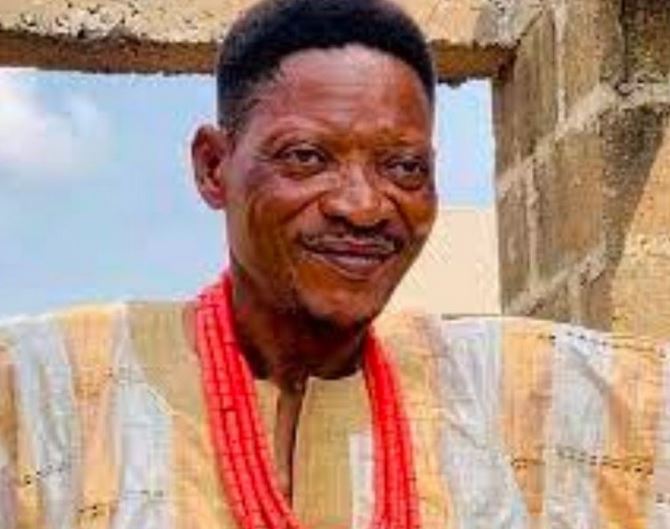In a revelation that has sent ripples across social media and sparked renewed conversations about political campaign financing in Nigeria, veteran actor Lalude has disclosed that he and his colleagues were allegedly paid N10,000 daily to campaign for President Bola Ahmed Tinubu during the intensely contested 2023 general elections. This candid admission, made during a trending interview, sheds light on the often-unseen financial aspects of celebrity endorsements in political campaigns and raises critical questions about transparency and accountability in the electoral process.
The Claim: Unpaid Labor to Daily Payments
Lalude, a respected figure in the Nigerian acting scene, particularly known for his roles in Yoruba-language films, provided a nuanced account of their engagement with the Tinubu campaign. He explained that initially, he and his fellow actors dedicated their time and influence to campaign for Tinubu for a significant period – a month and three weeks – without receiving any payment. This suggests an initial commitment perhaps driven by personal conviction, professional camaraderie, or an expectation of future rewards that were not immediately materialized.
However, this period of unpaid labor eventually transitioned into a daily stipend. Lalude stated that after this initial phase, they began to receive N10,000 per day for their campaign activities. While N10,000 may seem modest to some, in the context of the economic realities for many Nigerian entertainers, particularly those outside the mainstream A-list, such a daily payment could represent a significant income stream, making political campaign participation an attractive proposition.
The claim has quickly resonated across various online platforms, becoming a trending topic. This immediate widespread attention underscores the public’s keen interest in the inner workings of political campaigns, especially regarding financial flows and the involvement of public figures. It also reignites long-standing debates about the ethics of celebrity endorsements and the perceived influence of money in shaping public opinion during elections.
The Role of Entertainers in Nigerian Politics
Nigerian politics has a rich history of leveraging the popularity and influence of entertainers. Musicians, actors, and comedians often become prominent faces of political campaigns, drawing large crowds at rallies, creating catchy jingles, and using their social media platforms to sway public sentiment. For political parties, these endorsements offer a direct line to various demographics, particularly the youth and urban populations who follow these stars.
For the entertainers themselves, participation in political campaigns can offer:
- Financial Gain: As Lalude’s revelation highlights, direct payments are a common incentive, providing a significant income boost.
- Increased Visibility: Campaign platforms offer national exposure, potentially revitalizing careers or introducing artists to new audiences.
- Networking Opportunities: Aligning with powerful political figures can open doors to future opportunities, patronage, or even government appointments.
- Ideological Alignment: For some, participation is genuinely driven by a belief in the candidate’s vision or party’s manifesto.
However, their involvement also comes with risks, including public backlash, accusations of partisanship, or damage to their non-political brand if the endorsed candidate faces controversy. Lalude’s candidness about the payments, rather than just the endorsement, adds a new layer to this complex relationship.
Implications for Campaign Finance and Transparency
Lalude’s claim directly feeds into ongoing national conversations about campaign finance and transparency in Nigeria. Electoral laws in Nigeria place limits on campaign spending and mandate disclosure of funding sources, but enforcement and compliance often face significant challenges. Revelations of direct cash payments to campaigners, regardless of the amount, raise questions about:
- Source of Funds: Where does this money come from? Is it declared?
- Accountability: How are these payments tracked and audited?
- Fair Play: Does the ability to pay entertainers create an uneven playing field for less affluent candidates or parties?
- Influence Peddling: Does financial incentive overshadow genuine political conviction, turning endorsements into paid advertisements rather than expressions of civic engagement?
The 2023 general elections were particularly characterized by intense political mobilization, and the role of digital campaigns and influencers was more prominent than ever. Lalude’s statement provides a rare glimpse into the practical financial mechanisms that underpin such extensive outreach efforts. It fuels public skepticism about political rhetoric and encourages a closer look at the financial architecture of campaigns.
Economic Realities and the Attractiveness of Campaign Work
For many actors and entertainers in Nigeria, the entertainment industry, while glamorous, can be financially unstable. Film productions might offer sporadic work, and consistent high-paying roles are often limited to a select few. In this context, a guaranteed daily payment, even for a few weeks, from a political campaign can be a highly attractive and necessary source of income. This economic reality often puts entertainers in a position where they might accept such engagements regardless of deep ideological alignment, prioritizing financial stability for themselves and their families.
Lalude’s revelation serves as a reminder of the intricate interplay between socio-economic realities, political ambition, and the entertainment industry in Nigeria. It contributes to a broader public discourse on how political campaigns are funded and executed, prompting Nigerians to consider the true cost and motivations behind the endorsements they see during election cycles. As the interview continues to trend, it will undoubtedly spark more discussions, potentially pushing for greater transparency in political campaign financing in Nigeria’s future elections.


